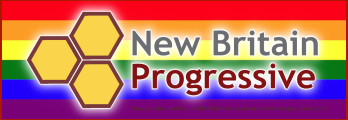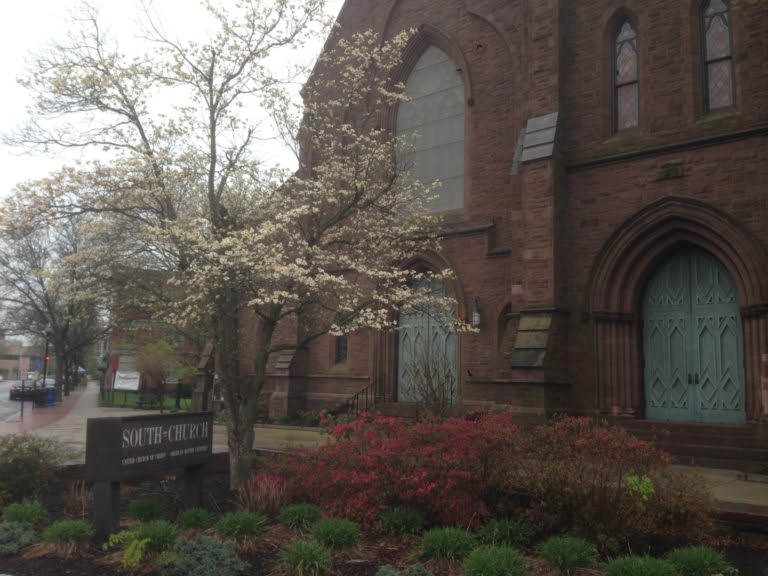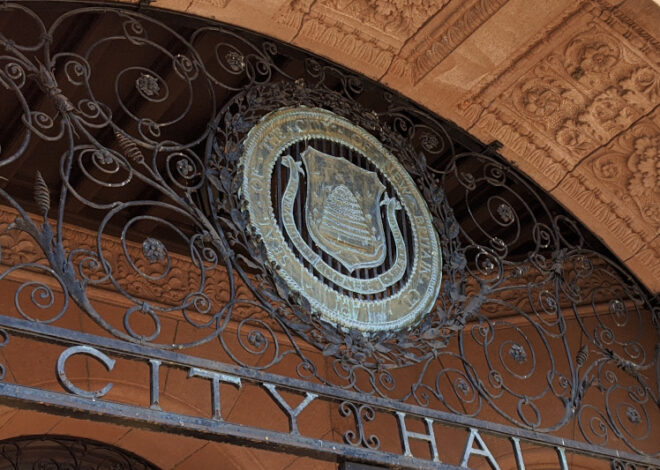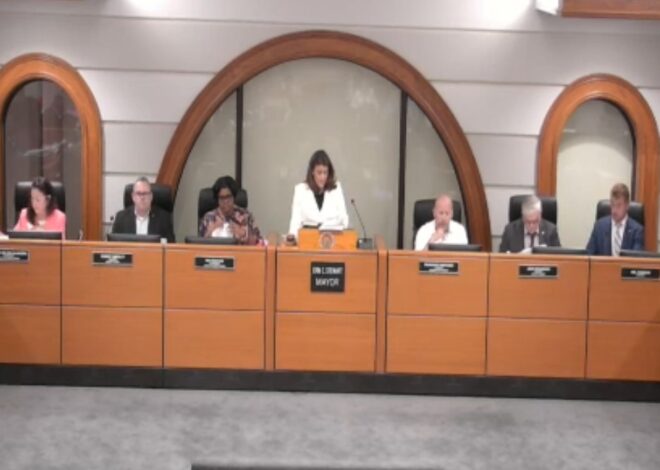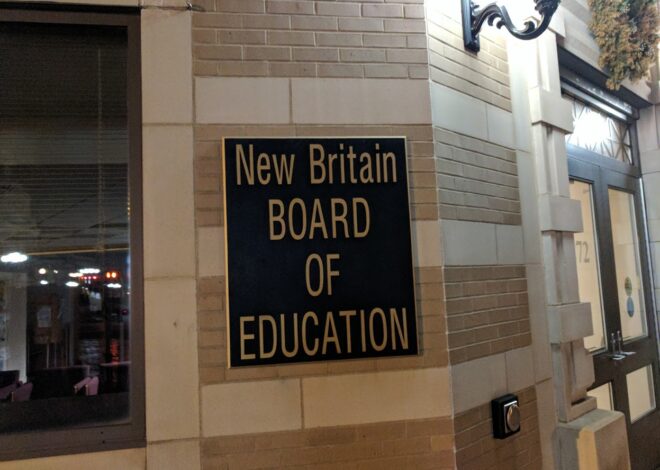By Geoff Elterich
Staff Writer
The words carved on the Arch Street wall of South Church’s Fellowship House, the former Sears and Roebuck building, is central to the identity of the church: “IN THE HEART OF THE CITY — FOR THE HEART OF THE CITY.” It is a mantra the church has tried to embody since its formation.
“We have a long history of being open to the city. It was an intentional decision to stay in this location,” said Jane Rowe, the Transitional Lead Pastor.
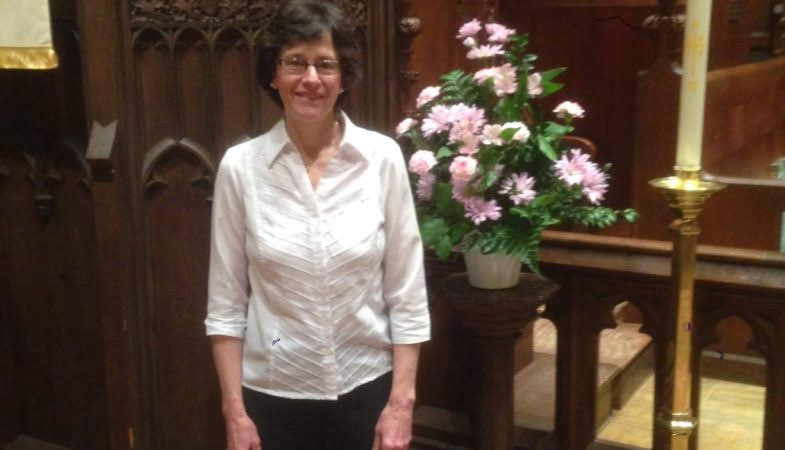
That decision was made in 1974, when First Baptist Church, founded in 1808 and located on West Main Street, and South Congregational Church, founded in 1842, joined together to form South Church. The two churches had always been friendly; both took the lead in ecumenical efforts in the city throughout the 19th and 20th centuries and even assisted the other when their buildings each experienced a fire, according to South Church’s website. The challenges of dilapidated buildings and changing demographics led to the decision to explore a new approach. One morning in September of 1974, the two congregations worshiped together in the First Baptist Church building, then walked through downtown towards the South Congregational Church building, where their joint ministry began.
Located on the corner of Main Street and Arch Street, where its large bell tower soars above downtown, South Church has been a mainstay in the community since its inception. The church has had major roles in founding important social welfare programs throughout the city, including the Prudence Crandall Center for Women, which was the first battered women’s shelter in Connecticut, the Friendship Center, the YWCA, Literacy Volunteers, and the Erwin Home, a shelter for single mothers who cannot support themselves. According to Pastor Rowe, the industrialist Cornelius Erwin, a member of South Congregational, provided funding to purchase a row of houses on Bassett Street almost 125 years ago and turned them into homes for “worthy and indigent women.” The home currently houses 60 women and South Church continues to oversee its board of managers.
South Church takes an active role in efforts to revitalize its Arch Street neighborhood and the New Britain community as a whole. Pastor Rowe explains that the church opens its building to a day care center, a social and feeding program for seniors, daily Narcotics Anonymous meetings, and various other community and social action groups. Two other churches even utilize the building: the Peace Mission Ministry, and Another Chance Church, both African American congregations. Considering their own history, they see the importance of showing hospitality to other congregations. Pastor Rowe explains, “Oftentimes, church is segregated. Different people have different styles of worship and traditions and histories. We are doing what we can to cross those divides, to build relationships, respect, and a mutual understanding of others.”
The church serves a diverse congregation of its own, coming from all different religious and ethnic backgrounds. They reach out to all generations as well. The YAHOO’s (The Young At Heart Senior Group) is a group of South Church seniors who get lunch together monthly to stay connected with each other and the church community. On the other end of the generational spectrum, the church has large outreach to the youth. They have a close, supportive relationship with Northend School and the New Britain Transitional Center, and they also have a youth ministry with other congregations, titled Youth at 90 Main.
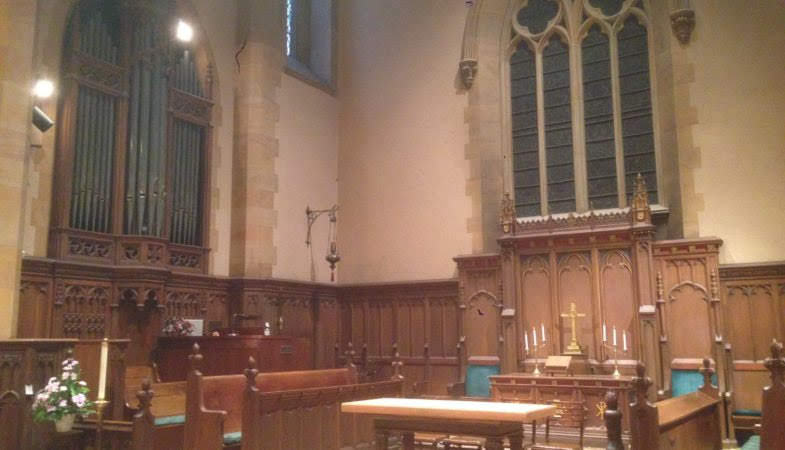
“We want to be a presence for the youth,” said Pastor Rowe, “A key aspect of our identity is being open and welcoming.” In fact, “Open, Welcoming, and Affirming,” a phrase indicating the church’s acceptance of LGBT people, has been its official designation since 2003.
According to its website, South Church is, “an Open & Affirming Congregation of the United Church of Christ (UCC) and a Welcoming & Affirming Congregation of the American Baptist Churches of Connecticut (ABC).” Approximately 10% of its members live in “alternative family settings,” some of which are LGBT couples and families. The motto for the United Church of Christ is, “No matter who you are, no matter where you are on life’s journey, you are welcome here.”
“We want to bring together diverse people, a position rooted in our history of welcoming immigrants. Welcoming the stranger, those on the fringe, is part of our DNA,” said Rowe.
That DNA includes a significant number of European immigrants throughout the 19th and 20th centuries. According to their website, in the 1860’s, the population of non-English speaking factory workers and their families in New Britain increased drastically. First Baptist began to provide German-language services. South Congregational served large numbers of Armenian, Assyrian, and Italian immigrants. There were also activities and programs for Chinese immigrants. A century later, the German Baptists had become members of First Baptist and the Assyrians and Italians were members of South Congregational. Both churches continued their traditions of serving new populations by sponsoring Spanish-speaking missions and welcoming Latino congregations to share their buildings.
“Doing good things for our neighbors does good for us. The people involved are changed by it,” said Rowe.
It is the church’s belief that extending a welcoming, helping hand benefits everyone. This belief is most apparent on Christmas Day. For the past 30 years, the church has hosted Christmas dinner in Cooper Hall. In recent years, it has fed over 500 people. They offer a meal and a place of hospitality for all who wish. It started as a small dinner for church members or people closely connected to the church and soon expanded, opening the dinner to anyone from the community who needs or wants it. Currently, they deliver half of the meals to individuals across the city who can’t get out of their homes. Volunteers from all over New Britain help out, as well as individuals from neighboring towns and members of a synagogue from West Hartford.
The Christmas Day dinner is a reflection of the Church’s identity. Another important aspect of the church that clearly reflects its identity is the Music Series. Over the years, South Church’s Music Series has provided the community with free or low cost access to some of the world’s finest musicians. The Church has the largest organ in the city, an extremely talented choir, and a highly regarded minister of music, Richard Coffey, who started at the church when it was still South Congregational in 1972. Richard sees music “as an important part of our presence in the heart of the city. Art and music is central to our spirituality.”
Richard recalled establishing the Music Series in 1973, a year after he began as Minister of Music. He talked with joy about the various music programs the series has offered throughout the years, including the upcoming concert, The Lorelei Ensemble, on Sunday, May 15 at 4pm. The Main Street Singers, a children’s choir made up of children from all over the region, is another program he helped create that is an essential facet of their outreach to youth.
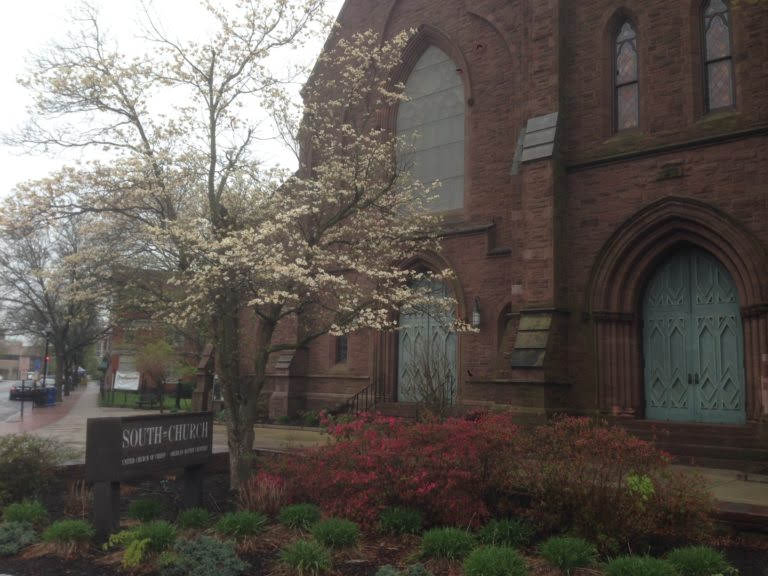
As the church focuses on social progressivism, the Music Series has been very progressive artistically as well. Richard helped establish CONCORA, the region’s first concert choir. As its director for 40 years, he brought together talented professional and amateur musicians to perform for the community. Music is a vital aspect of their ministry, as they believe music provides a powerful way to connect with community and with one’s own spirituality.
Music helps the church connect to the city. Besides the Music Series concerts the church offers to the community, the bell tower, standing high above the buildings lining Main Street, is a beating heart in the middle of the city. According to Richard, the tower holds 14 bells— installed in 1904— weighing about 20,000 pounds. There is a mechanical keyboard connected to the bells, played by a live musician. In addition to the daily ringing, the bells are used to signal significant occasions; after tragic events, such as 9/11, the bells toll: slowly repeated, somber, single tones emanate from the 4,500 pound bell. On joyful occasions, such as the Memorial Day parade, the bells peal: a loud, joyful ringing of several bells together.
On any occasion, it is comforting to hear the bells ring out through the center of the city, and it is comforting to know there is a place that accepts everyone for who they are. South Church has long been a community of support, care, and reflection. Whether Black, White, Latino, Asian; poor, rich, or in-between; addict or doctor; immigrant or industrialist; straight, gay, bisexual, or transgender; South Church welcomes all with open arms, beautiful music, and a warm meal.
